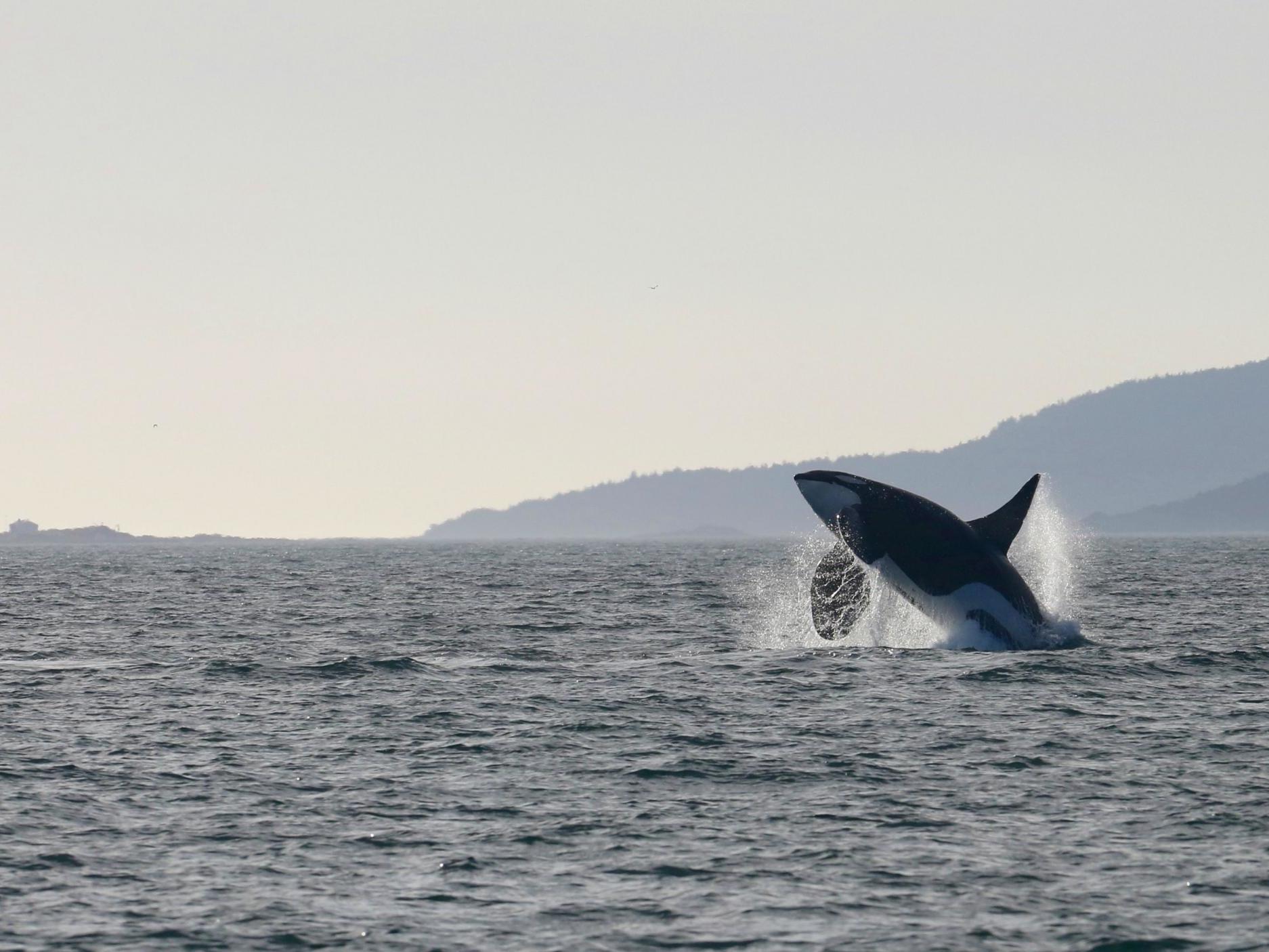The killer whales of the Puget Sound are dying out and we can't save them
Twenty years ago, the population was in the hundreds. Today, there are as few as 75 individuals. What will it take to save these animals? A herculean effort at every level, whale-watching brothers Howard Garrett and Ken Balcomb tell Andrew Buncombe

It’s like the sound of a large piece of wood being smacked hard on to water. Not the sharp, narrow crack of a rifle, but something heavier, flatter. Howard Garrett immediately knows what it is.
“That’s a whale,” he says, hurrying to the balcony. “It was slapping its tail. And those are blows – exhalations. There are several. Those blows had different sounds.” For the past four decades, Garrett has been monitoring the killer whales of the Puget Sound with rare intensity. He and his half-brother, Ken Balcomb, are among scores of naturalists, some paid, most volunteers, who track the precise movement of the creatures on a daily, or even hourly, basis.
They have assigned them numbers, plotted matrilineal relationships of different pods, mourned the death of an individual, and celebrated that most glorious rarity – the successful birth of a new calf.
Subscribe to Independent Premium to bookmark this article
Want to bookmark your favourite articles and stories to read or reference later? Start your Independent Premium subscription today.
Join our commenting forum
Join thought-provoking conversations, follow other Independent readers and see their replies